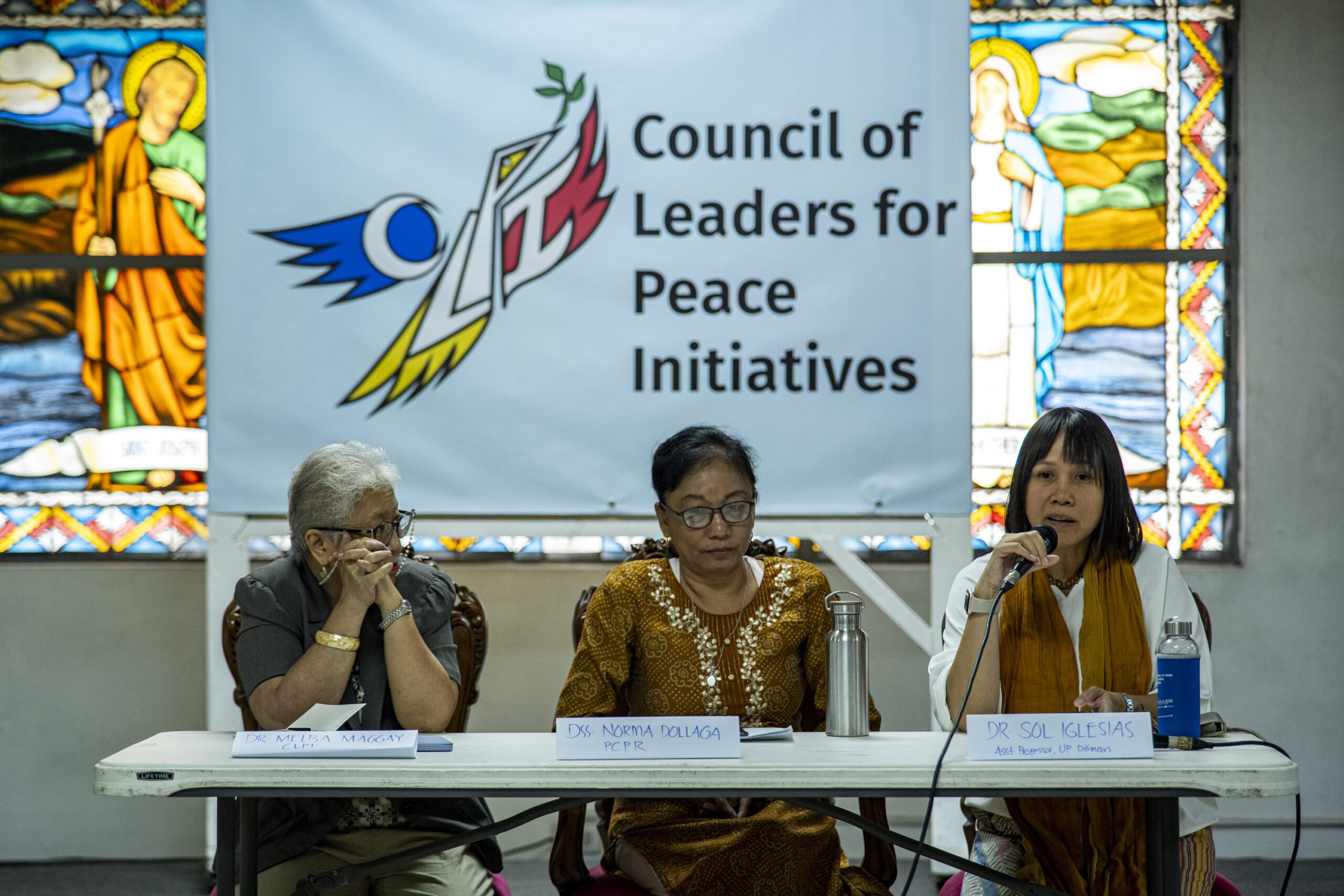Leaders of various faith-based and civil organizations in the Philippines urged President Ferdinand Marcos Jr. to make “a clear and unqualified” commitment to peacefully address the root causes of the world’s longest ongoing communist revolution.
The newly formed Council of Leaders for Peace Initiative (CLPI) renewed the calls for the resumption of formal peace talks between the Government of the Republic of the Philippines (GRP) and the communist-led National Democratic Front of the Philippines (NDFP).
The group said peace negotiations must continue “without preconditions, on the basis of previously inked bilateral agreements, and bolstered by confidence and trust-building measures from both parties.”
The call was made a few days ahead of Marcos Jr.’s third State of the Nation Address.
Former President Rodrigo Duterte on Nov. 22, 2017, signed Proclamation 360 declaring the termination of the peace negotiations, which was followed by the arrests of several NDFP peace negotiators.
In a peace forum organized by the CLPI at Sto. Domingo Church in Quezon City on July 16, 2024, United Methodist Deaconess Norma Dollaga, recipient of the 2024 World Methodist Peace Award, stated that as long as there is an armed struggle, “there is a reason for talks.”
“[Armed struggle] will keep coming back because of injustice, landlessness, poverty, inadequate access to basic services, and other roots of the conflict,” she added.
Melba Padilla Maggay, a CLPI member and founder of the Institute for Studies in Asian Church and Culture, challenged churches and religious institutions to advance peacebuilding by “winning the hearts and minds” of the Filipino people, especially in remote areas.
Maggay mentioned that the ‘Church’ has the capacity to alter the course of the peacebuilding situation in the country due to its influence and presence in every village.
In November 2023, both parties announced that they agreed to “a principled and peaceful resolution of the armed conflict.”
The announcement from the GRP and NDFP generated significant hope and optimism among peace advocates, as well as those most adversely affected by the ongoing armed conflict, including rural poor and Indigenous communities, according to a statement by CLPI.
CLPI, however, expressed disappointment that “we have not heard any positive development, especially prospects for the resumption of the formal peace negotiations.”
“We are concerned that this silence indicates a return to the policy of all-out war by the government, aimed at crushing the revolutionary movement using the armed might of the state,” the group said.
“Indeed, in the wake of this policy, grievous violations of human rights and international humanitarian law are the undeniable and unacceptable consequences,” it added.
CLPI also expressed concern over the extension of militaristic policies to civil society, which plays a legitimate role in critiquing government policies and advocating for reforms.
The group denounced the practices of red-tagging, the filing of unwarranted criminal charges including accusations of “terrorism” and “financing terrorism,” and other forms of political harassment against groups and activists focused on specific causes, development workers, human rights defenders, and journalists.
CLPI has 17 initial convenors including Catholic bishops Jose Palma of Cebu and Jose Colin Bagaforo of Kidapawan, and United Methodist Bishop Ruby-Nell Estrella.



